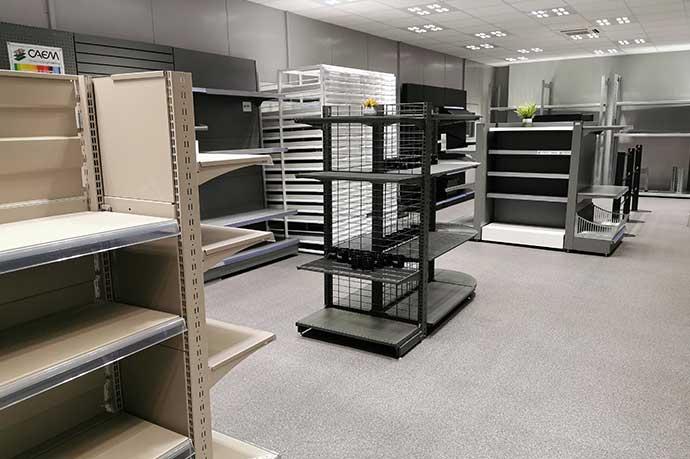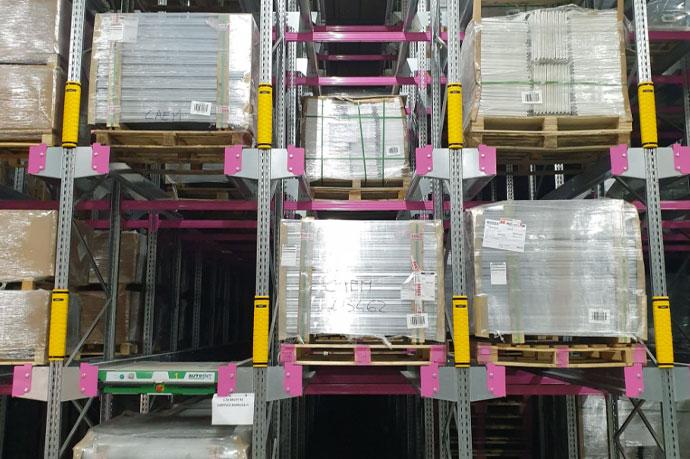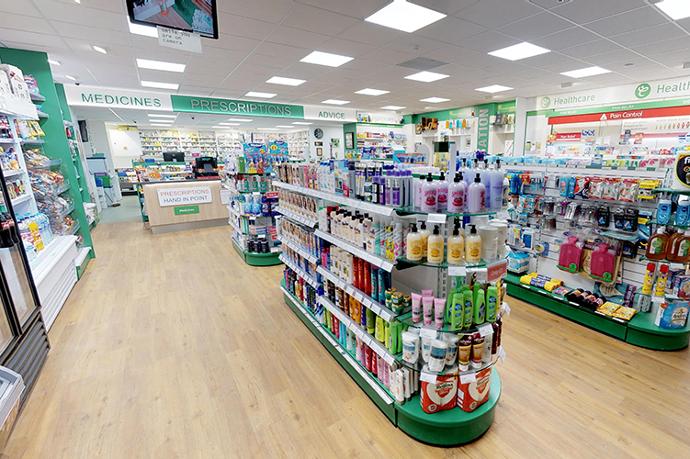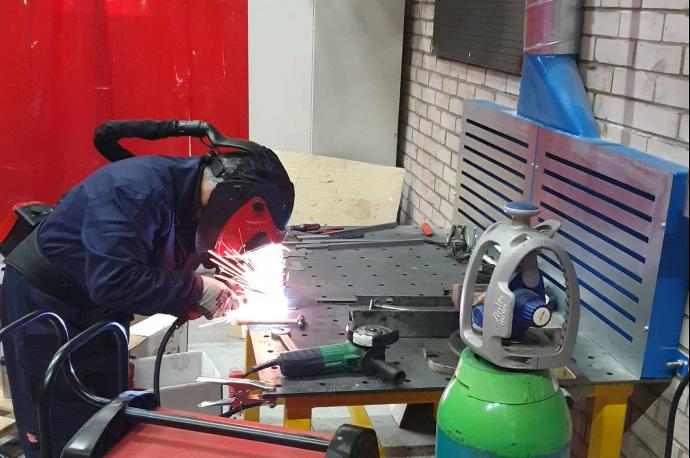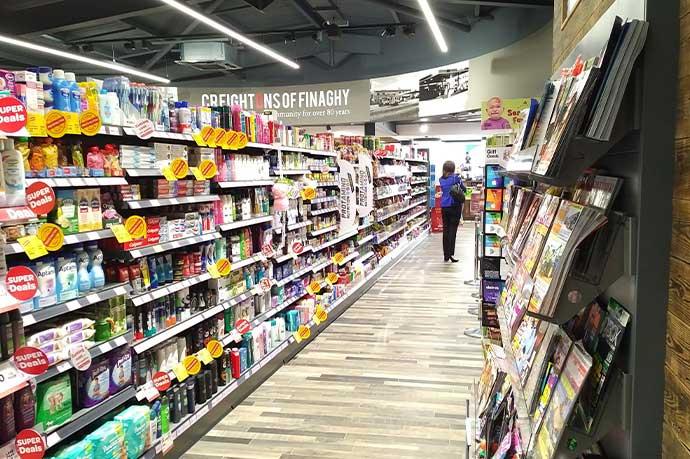Medical Supply Storage Solutions: Modular Drawers
Efficient medical supply storage solutions are not just about tidiness—they are central to the safety, efficiency, and compliance of modern healthcare. CAEM, with its deep expertise in modular shelving and medical storage systems, has seen first-hand how the right storage infrastructure can transform clinical workflows and patient outcomes.
Introduction to Medical Supply Storage Solutions
Understanding the Importance of Efficient Medical Storage
Every healthcare facility, from bustling hospitals to compact clinics, depends on fast, reliable access to medical supplies. An efficient storage system reduces wasted time searching for items, minimises clutter, and supports staff morale. More critically, well-organised storage safeguards hygiene and limits the risk of contamination, keeping supplies safe and usable. These practical advantages feed directly into patient care—streamlined storage not only meets regulatory requirements but also enables healthcare teams to respond swiftly and confidently when every second counts.
Recent data demonstrates the significant impact of optimised storage systems on patient outcomes. Hospitals with highly automated supply chains experience 14% fewer adverse patient events and a 21% reduction in the average length of stay compared to less automated institutions, highlighting how storage efficiency directly translates to improved clinical care.
Aligning Storage Solutions with Healthcare Needs
Healthcare environments are diverse, each with unique storage challenges. Flexibility is essential. Storage systems must accommodate a range of item sizes, security needs, and accessibility requirements. At CAEM, collaboration with healthcare professionals during planning and installation ensures that every solution is tailored to actual workflows and patient care priorities. The modular nature of CAEM's drawer systems means that storage can evolve alongside clinical needs, providing long-term adaptability and satisfaction.
Types of Medical Supply Storage Solutions
Shelving Units and Racks
Customisable Shelving Options
Modular shelving is a cornerstone of efficient medical storage. Adjustable systems—like those developed by CAEM—allow facilities to reconfigure layouts as inventory changes. This flexibility supports a wide variety of supplies, from pharmaceuticals to records, maximising space and aiding systematic organisation. For environments where needs change rapidly, such as pharmacies or busy hospital wards, the ability to expand or adapt shelving ensures continued efficiency.
Space-Saving Racks
High-density racking solutions are vital where space is at a premium. CAEM's robust metal shelving, engineered for both healthcare and retail, is designed for easy reconfiguration and frequent cleaning. These racks increase storage capacity within the same footprint, supporting infection control and operational efficiency.
Cabinets and Lockers
Secure Storage for Sensitive Supplies
Security is paramount when storing medicines and confidential materials. CAEM's medical storage cabinets feature lockable compartments, tamper-evident mechanisms, and reinforced, double-skinned doors, aligning with the highest regulatory standards. Electronic locking options provide audit trails and alarms, helping facilities meet strict compliance requirements for controlled substances.
Accessibility Features
Cabinets and lockers must balance security with ease of access. CAEM's designs focus on ergonomic layouts and user-friendly features, enabling staff to retrieve items quickly, even in urgent situations. Accessibility considerations ensure that all team members, regardless of mobility, can use the systems safely and efficiently.
Portable Carts and Trolleys
Streamlining Mobility in Healthcare Settings
Mobile storage solutions—such as carts and trolleys—are indispensable for moving supplies between departments or points of care. While CAEM's modular systems are primarily fixed, their flexible assembly allows for custom mobile bases upon request, supporting dynamic workflows and improving response times in clinical settings.
Types and Applications
There is no one-size-fits-all solution: medication carts, surgical trolleys, and emergency response units all require tailored configurations. CAEM's modular approach allows healthcare providers to specify layouts and accessories that fit their precise operational needs, enhancing both organisation and functionality.
Sterile Storage Solutions
Methods to Maintain Hygiene Standards
Sterility is non-negotiable in medical storage, requiring adherence to rigorous infection control protocols and cleaning standards. CAEM's solutions incorporate smooth, non-porous surfaces and minimal crevices to simplify cleaning and reduce infection risks. The design philosophy centres on materials that can withstand frequent disinfection with hospital-grade cleaners while maintaining structural integrity.
Sealed compartments and dust-protective finishes help maintain rigorous hygiene standards, supporting compliance with the National Standards of Healthcare Cleanliness. Regular cleaning protocols must be established and followed consistently, with storage systems designed to facilitate thorough decontamination between uses. This includes easy-to-reach corners, removable components for deep cleaning, and surfaces that resist bacterial growth.
Compliant Materials and Designs
Durability and compliance go hand-in-hand. CAEM's predominantly metal construction stands up to frequent cleaning and meets pharmaceuticals-compatible standards, ensuring long-term reliability and regulatory adherence. The selection of appropriate materials extends beyond basic durability to include considerations for chemical resistance, non-reactive surfaces, and compatibility with sterilisation procedures.
UK Regulatory Compliance for Medical Storage
Healthcare storage systems must meet stringent regulatory requirements established by NHS England and the Care Quality Commission. Understanding these standards is crucial for any facility implementing medical storage solutions.
Critical Compliance Standards
Temperature control requirements mandate specific environmental conditions for different categories of medical supplies. Ambient storage must maintain 15°C–25°C, while chilled storage operates between 2°C–8°C. Vaccine fridges should never exceed 50% capacity to ensure proper airflow and temperature distribution.
Controlled drug storage follows strict security protocols under the Misuse of Drugs (Safe Custody) Regulations 1973. Storage cabinets must demonstrate minimum 5-minute attack resistance and withstand downward forces of 980 newtons, complying with British Standard BS2881 Level 1 or higher.
Asset management requires comprehensive labelling and maintenance tracking for all medical devices and equipment. Each item must display service dates and maintenance schedules, with central database recording ensuring traceability and compliance.
Stock management protocols emphasise regular ordering cycles of 1–2 weeks to prevent over-ordering and minimise waste. Effective audit systems must identify expired stock and maintain optimal inventory levels without compromising storage capacity limits.
Staff training and standardisation requirements mandate that personnel understand proper storage protocols, handling procedures, and compliance documentation. Regular training reviews ensure ongoing competency and adherence to evolving standards.
Technological Integrations in Medical Storage
RFID and Barcode Systems
Automating Inventory Management
Healthcare organizations implementing comprehensive supply chain automation have documented average cost reductions of 15–22% in the first year, alongside improved order fulfillment rates. RFID and barcode integrations streamline stock monitoring, reducing manual paperwork and freeing staff for patient care.
The accuracy improvements are remarkable. RFID-enabled inventory management systems achieve 95–99% inventory accuracy rates, versus 65–85% with manual counting methods, representing a significant leap in reliability and operational confidence.
Reducing Human Error
Automated inventory management systems have reduced stock-outs by up to 73% and decreased inventory carrying costs by 25–30% in implemented facilities. Automated alerts and tracking ensure that sensitive items are always accounted for, while audit trails support compliance and accountability.
Smart Storage Solutions
Monitoring Temperature and Humidity
Some medical products are highly sensitive to environmental conditions. CAEM's smart storage cabinets include temperature monitoring and alarms, supporting compliance with NHS and international guidelines for drug integrity. Continuous monitoring helps prevent costly losses and ensures product efficacy throughout the supply chain.
Improving Resource Allocation
Smart systems gather data that can guide purchasing and restocking decisions, reducing waste and supporting efficient resource allocation. This visibility into inventory usage patterns enables healthcare providers to anticipate needs, cut unnecessary expenditure, and keep essential supplies in stock. Approximately 62% of healthcare providers report that automation and technology adoption have led directly to improved response times to supply chain disruptions and measurable cost savings.
Proven Results: UK Healthcare Case Studies
Real-world implementations demonstrate the tangible benefits of modular medical storage solutions across various healthcare settings.
Rapid Theatre Expansion at Sulis Hospital
Sulis Hospital's modular orthopaedic operating theatre suite installation was completed in just 7 days, significantly ahead of schedule compared to traditional construction methods. This offsite-constructed solution enabled the hospital to expand orthopaedic services, reduce surgery backlogs, and maintain strict infection control standards while minimising operational disruption.
Enhanced Accessibility at Tunbridge Wells Hospital
ModuleCo Healthcare's car park expansion at Tunbridge Wells Hospital added 173 spaces, directly addressing accessibility challenges that were impacting patient flow and staff efficiency. The modular approach minimised disruption while providing a future-proofed solution for anticipated growth.
NHS Trust Sterile Services Transformation
Several NHS Trusts have implemented modular Sterile Services Departments under managed service agreements, achieving enhanced compliance with HTM 01-01 decontamination standards while generating predictable long-term cost savings. These facilities improved turnaround times for instrument sterilisation, boosting theatre productivity and reducing case cancellations.
Best Practices for Optimising Medical Supply Storage
Implementing an Effective Labelling System
Enhancing Identification and Retrieval
Clear labelling is more than a convenience—it's a safeguard against errors and delays. CAEM's modular drawer systems feature customisable dividers and labelling options, supporting rapid identification and first-in, first-out inventory rotation.
Colour Coding and Standardisation
Colour-coded and standardised labelling makes navigation intuitive, even for new or temporary staff. This systematic approach supports consistency across departments and reduces confusion.
Training Staff for Proper Maintenance and Usage
Conducting Regular Training Sessions
Technology and protocols evolve; so must staff knowledge. Ongoing training ensures everyone is up to date on storage procedures, maintenance, and new system features. CAEM advises regular refreshers to reinforce best practices.
Addressing Potential Safety Hazards
Proper training also covers safety—such as correct stacking and keeping exits clear—reducing the risk of accidents and ensuring a safe environment for both staff and patients.
Future Trends in Medical Supply Storage
Sustainable Storage Solutions
Eco-Friendly Materials and Designs
Sustainability is shaping the future of healthcare storage. CAEM's commitment includes using recycled aluminium, responsibly sourced timber, and low-impact plastics. These choices reduce environmental impact while maintaining durability and hygiene.
Reducing Carbon Footprint in Healthcare Facilities
Energy-efficient designs and space-optimised layouts contribute to lower energy consumption and reduced emissions. Sustainable supply chain practices, including energy-efficient automated storage systems, improve delivery resilience while supporting environmental goals.
Innovations in Storage Technology
AI and Machine Learning for Predictive Management
Artificial intelligence is beginning to reshape inventory management. Predictive analytics help anticipate supply needs, automate ordering, and minimise waste, ensuring that critical items are always available without overstocking.
Integration with Healthcare IoT Devices
IoT-enabled cabinets and smart lockers, like those offered by CAEM, enable real-time monitoring, cloud-based management, and automated alerts for security or inventory issues. This connectivity streamlines operations and supports telemedicine and other digital health initiatives.
Medical supply storage solutions have never been more important or more advanced. Through fully modular systems, robust construction, and seamless technological integration, CAEM delivers storage that adapts to the evolving demands of healthcare. For facilities seeking to store medical supplies with maximum efficiency, security, and compliance, modular drawer systems and smart storage technologies offer a proven path forward—one that supports both operational excellence and patient care.
